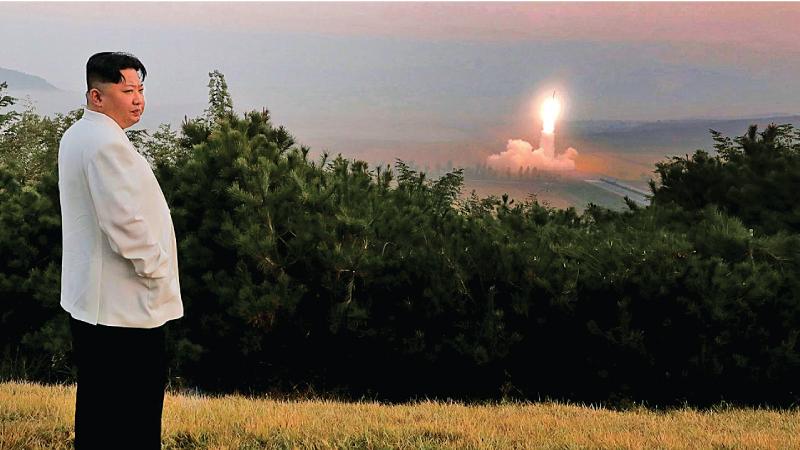
As a statement of intent, it was about as blunt as they get.
North Korea has developed nuclear weapons and will never give them up, its leader, Kim Jong Un, told the world last month.
The move was “irreversible,” he said; the weapons represent the “dignity, body, and absolute power of the state” and Pyongyang will continue to develop them “as long as nuclear weapons exist on Earth.”
Kim may be no stranger to colorful language, but it is worth taking his vow – which he signed into law – seriously. Bear in mind that this is a dictator who cannot be voted out of power and who generally does what he says he will do.
Bear in mind too that North Korea has staged a record number of missile launches this year – more than 20; claims it is deploying tactical nuclear weapons to field units, something CNN cannot independently confirm; and is also believed to be ready for a seventh underground nuclear test.
All this has prompted a growing number of experts to question whether now is the time to call a spade a spade and accept that North Korea is in fact a nuclear state. Doing so would entail giving up once and for all the optimistic – some might say delusional – hopes that Pyongyang’s program is somehow incomplete or that it might yet be persuaded to give it up voluntarily.
As Ankit Panda, a Stanton senior fellow in the nuclear policy program at the Carnegie Endowment for International Peace, put it: “We simply have to treat North Korea as it is, rather than as we would like it to be.”
Saying the unsayable
From a purely factual point of view, North Korea has nuclear weapons, and few who follow events there closely dispute that.
A recent Nuclear Notebook column from the Bulletin of the Atomic Scientists estimated that North Korea may have produced enough fissile material to build between 45 and 55 nuclear weapons. What’s more, the recent missile tests suggest it has a number of methods of delivering those weapons. Publicly acknowledging this reality is, however, fraught with peril for countries such as the United States.
One of the most compelling reasons for Washington not to do so is its fears of sparking a nuclear arms race in Asia.
South Korea, Japan and Taiwan are just a few of the neighbors that would likely want to match Pyongyang’s status.
But some experts say that refusing to acknowledge North Korea’s nuclear prowess – in the face of increasingly obvious evidence to the contrary – does little to reassure these countries. Rather, the impression that allies have their heads in the sand may make them more nervous. “Let’s accept (it), North Korea is a nuclear arms state, and North Korea has all necessary delivery systems including pretty efficient ICBMs (intercontinental ballistic missiles),” said Andrei Lankov, a professor at Kookmin University in Seoul and a preeminent academic authority on North Korea.
A better approach, some suggest, might be to treat North Korea’s nuclear program in a similar way to Israel’s – with tacit acceptance.
That’s the solution favored by Jeffrey Lewis, an adjunct professor at the James Martin Center for Nonproliferation Studies at the Middlebury Institute of International Studies in Monterey.
“I think that the crucial step that (US President Joe) Biden needs to take is to make clear both to himself and to the US government that we are not going to get North Korea to disarm and that is fundamentally accepting North Korea as a nuclear state. You don’t necessarily need to legally recognize it,” Lewis said.
Both Israel and India offer examples of what the US could aspire to in dealing with North Korea, he added.
Israel, widely believed to have started its nuclear program in the 1960s, has always claimed nuclear ambiguity while refusing to be a party to the nuclear Non-Proliferation Treaty, while India embraced nuclear ambiguity for decades before abandoning that policy with its 1998 nuclear test.
“In both of those cases, the US knew those countries had the bomb, but the deal was, if you don’t talk about it, if you don’t make an issue out of it, if you don’t cause political problems, then we’re not going to respond. I think that’s the same place we want to get to with North Korea,” Lewis said. – CNN
